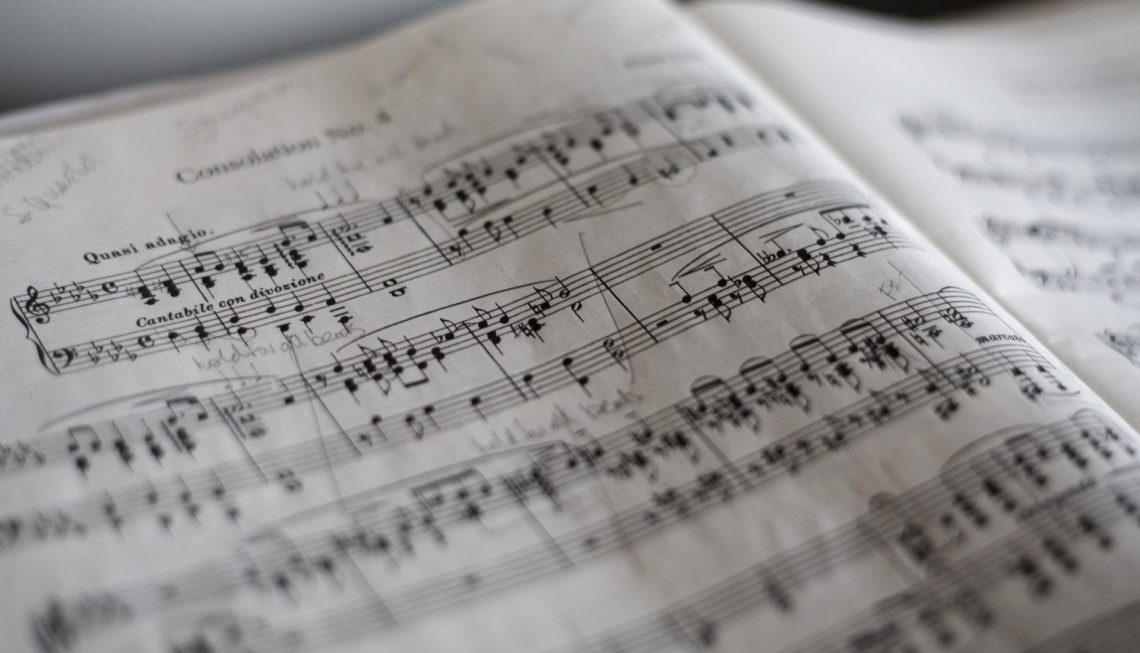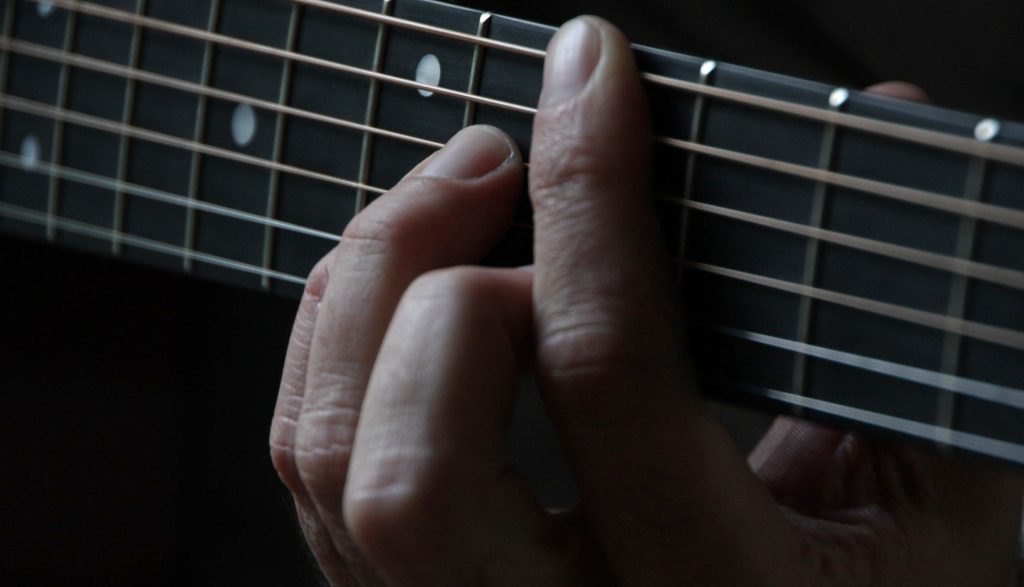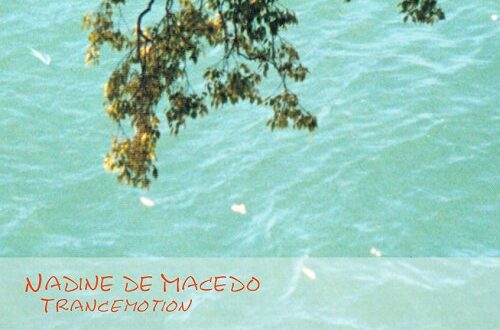
Songwriting techniques worth trying
Do you have favourite techniques for songwriting? Some artists may develop a certain process to write songs more quickly. In this post, I’ll discuss different processes and methods of songwriting that may help you on how to write a song from scratch.
Talking to plenty of musicians and lyricists, I figured out that everybody developed a process to start a song from scratch. I noticed, that people who call themselves lyricist, start with the lyrics or vocals first, whereas drummers are more likely to create a groove and add a bass. In my honest opinion, there is no right or wrong. These are different attempts, and most of them are worth a try.
Theme oriented songwriting
The main idea about theme oriented songwriting is to write down a topic or a musical theme and construct the song around. Here are some ideas on how to write a song.
Start with lyrics
Are you a wordsmith? Some songwriters already have a topic in their minds and write down the lyrics first. Most of them already have a metric and rhyme scheme. Even without knowing the melody, words of a skilled lyricist flow naturally in rhythm. You may only vary the pitch to create a melody.
About a year ago, I tried another method which has been completely unknown to me: Word clouds and mind maps. You start with a keyword and generate words that are linguistically or contextually related. For example, building is connected to house or construction, construction may be connected to noise and dirt… Once you found a couple of words, you build phrases. This has been an interesting and challenging experience.
Another quite related method to start a song with lyrics is creating 2-4 phrases and search for end rhymes with a rhyming dictionary. This will set your focus on metrics and rhyming. Be careful not to use super obvious rhymes like “you” and “blue”.
You can also write down your spontaneous feelings and thoughts about your perception. Just a snapshot of your life or the situation you’re observing right now. It’s a more natural way to use a word cloud. This technique seems to be used quite often in singer-songwriter and country lyrics.
Sound design first
I must admit, I’d never have heard about this method, if I never talked to producers, keyboarders and guitarist who left their heart on sound design. You can spend hours and hours on your amps or synthesizers to recreate the sound you have in your mind. Sometimes, a certain sound inspires you to write a melody. Once you’re done, you create the next sound and the next element. Working this way is very, creative and intense experience, leading to a song with a strong atmosphere. Genres like ambient, lo-fi, shoegazing or djent cannot live without sound designers.
Even if you don’t know the meaning of all the knobs of your gear, you can follow the sound design first approach by using presets. Take a sound, play some notes, jump to the next. Put some weird effects on it and listen. It’s interesting to turn some arbitrary knobs and hear the outcome. “Neotokyo” happened this way. I used odd compression settings on the piano and wrote the chords later.
Getting the rhythm straight
In my early beginnings, I wrote plenty of songs, starting with the rhythm section. I picked a tempo, choose some nice samples or drum sets and created a typical 16-beat intro for club music. By adding more and more percussion elements, tonal FX and loops you start a good build. The next natural step would be adding the bass, and then you start with fragments of melodies turning into full themes.
I always thought it’s an approach for writing club music, but I talked to rock and fusion drummers and bassists who also work this way. It’s been interesting to hear, that a drum riff could be as catchy as a guitar riff. I never thought this could happen to me with non-electronic music, until I wrote “Wrench in the works” based on a 6/8 drum groove using plenty of toms.
In my honest opinion, the interplay between drums and bass is very important, no matter if acoustic or electronic music. A good song needs a strong groove. Starting with the rhythm section first urges you to structure a song, cause the drum groove should not become boring after a couple of repetitions.
Building a song around a melodic theme
In classical music, soundtrack and jazz, the idea of writing a song to an existing melodic theme is quite common. Of course, it’s boring to loop the same melody over and over again, so musicians modify the theme by using different instruments, accentuations, keys or inversions. If you want to dive deeper into the topic, I recommend listening to classical variations or visit jam sessions.
There are different ways to write strong themes. If you wrote the chords first, you can figure out the scale, interpret it as a limited set of notes and improvise. Some people write melodies based on arpeggios from the chords they used. Pragmatic songwriters do not even know the scale they’re in, they just write!
As soloist or arranger, you may also have tried a technique, I’d call harmonizing with melodies. Once you found your main melody, you try a new melody with a different instrument instead of using a chord. This may limit the amount of chords you can use for harmonizing.

Arrangement oriented songwriting
The above-mentioned techniques are great to write a song with a consistent feeling, melody or groove. But if you’re deep into arrangement, you can try to write the structure first and add interesting details.
Composing with the main instrument
In series and movies, songwriters are usually portrayed as guitarists or pianists playing their instruments and singing along. There may be some truth in it, but it is not the only way to approach a song with an instrument. If you’re deep into arrangement, you may write the chords first or in parallel to the melody. Use your main instrument to play the whole song, add more layers later. “Going My Way” has been written on the piano, before I created a drum groove, a bass and a guitar.
Talking to fellow musicians, I feel like there are music theorists and pragmatists. People, who are really deep into music theory, deal with chord progressions, key changes and improvisations in a completely different way. I learned, that harmonic function theory and cadence theory are two approaches to (a) find the next chord according to a certain mood and (b) find chords to an existing melody. Jazz theory may even go deeper.
Arranging final or draft takes
Composers, instrumentalists and arrangers have different views on the moment you hit the record button. I know people, who prefer to learn to play a part properly, record it and jump to the next. Digital tools make it possible to change the order of the recorded parts or to re-use them. So they work part-wise, write and arrange their songs during their composition.
I also know people who need the full arrangement before hitting ANY record button. And people, who love to write a first lousy prompt on their acoustic guitar, do plenty of re-recordings and go real big on their DAW. The idea is quite the same as composing a song with a main instrument, but every instrument of your first arrangement is a draft. When you’re done with the arrangement, you (re-)record everything neatly.
Start with the full instrumentation
Another huge point of discussion seems to be the question of where you start with your composition. Should you start in the beginning and create an intro, a verse and work your way up to the full instrumentation (tutti)? Or should you create the chorus or tutti first? Both methods have interesting con’s and pro’s.
I noticed that sound designers love to create intro and outros. The full focus on the first part of the song ensures that the listener is carried away by a mind-blowing atmosphere. However, the length of commercial music decreases, and it is very challenging to write an intro for a song below 3 minutes.
If you decided to work on the full instrumentation first, you have to make choices about when and where elements should be dropped. Writing an intro and verse is challenging, because looping the chorus chord structure can take away some drive.
What is my approach?
Thanks for reading my lengthy thoughts on songwriting. You may have noticed that I tried a lot of these techniques. I had serious issues writing a song based on sound design, rhythm or a word cloud. This is where I figured out that I’m definitely more arranger.
I prefer to start my songs in the chorus or tutti. My reason for this is quite plain: I love catchy hook lines and starting with the tutti I know the maximum amount of instruments for that song. I’m flexible enough to add another element as soloist later on, but knowing the instrumentation makes it quite easy for me to decide who starts when. My biggest difficulty is writing verses. They need less instrumentation and have to fit in harmonically without being too close to the chorus. I also figured out that I love songwriting from rough drafts to final recordings.
Trying different techniques on songwriting has been a pleasure. I learned so much about music or the way I work.
How do you write a song from scratch?





4 Comments
Joseph Rubiano
Such an interesting topic!
I usually start to write a new song from scratch with the chord progressions or with the drums.
But in the majority of the time it really depends on what’s in my mind. Sometimes a simple bass progression shows me what’s next or the steps to follow and make my ideas real. It also applies when I just get a melody in my mind.
I’ve noticed that many producers start with a sample, experimenting with different key scales on the sampler, then they just add a chord progression and get the main part of the song as well.
I’m someone who considers that the music process is like building a house, first thing of all is the base, then walls and structure stuff and finally the furnishings and decoration. But music is not a house, it’s a piece of art that has many ways to express feelings.
Pretty good and rich topic.
Cheers!
Nadine
Thank you. Indeed, there’s a lot to write about and I had trouble with structuring and shortening the article. I noticed that many electro people start with drum patterns of 8 bars, build a base and then a melody. Barely seen any pop or rock songwriter doing this. Maybe the workflows and techniques are differ from genre or instrument? You may laugh but there are many tutorials and books which describe audio production, composition or writing lyrics step by step. I really don’t get these.
Douglas Roossien
very interesting …wish I knew about this during Covid shutdown …talking music, learning from the experience of others is a worthwhole time spent. I am weak on guitar compared to most accomplished players…I perform life well enough at open mics. When i write or start a song …it usually starts with words i write from instantanious feelings i have about pictures. I use figurative speach almost too much. …but never like anyone else …I read very little and write most of the time. Once i develop a verse …or if lucky a chorus with a catchy hook. i get my guitar and see what feels good …changing the chords until it has a decent progression . Then most of the time i let it marinade until my fingers are rested and my mind fresh. I don’t persist tired at night unless a vidion from heaven appears(rarely) …as i polish i write down any and all words that make sense in the feel of the song RARELY using the sames word more than once …heavy on the alliterations … and true “natural” rhymes …trying not to force any.
i use the word processor A LOT and change frequently and am very compulsive about the right amount of syllables. My rule …use less words whenever you can …stay short …in time if you can …and these days …find somebody who can put it to music and mix that you trust …(for way too many years / I didn’t)
Nadine
Thank you, Doug! When I started with music, I felt the strong pressure of learning at least one instrument well enough to perform or release. I tried hard, but I never reached a stage ready level on piano, my vocals are not even good enough for a demo. But teaming up with other musicians and talking frankly about strengths, weaknesses and aims, I realised that (a) you don’t have to know everything and (b) your strengths could be another one’s weakness. I never knew about my songwriting and arrangement skills until I co-write songs and saw the tabs and arrangements of other musicians. I completely underestimated the importance of a good lyric until somebody send me one and I HAD TO compose the song in an instant!
I wish I could write some lyrics from a feeling, but paiting pictures is not my thing. My lyrics barely make use of images, I just write what I think. Plain and direct. This works well with rock and metal music, writing an emotional ballad is a real struggle.
Which tools do you use for word processing? I sometimes use a rhyming dictionary but most of the time, I just count syllables and try. No idea if there is a straighter approach.